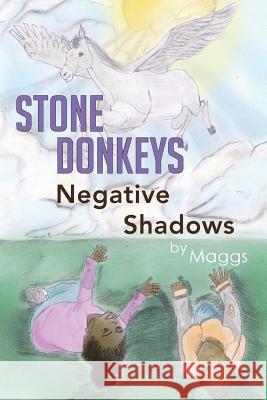Stone Donkeys Negative Shadows » książka
Stone Donkeys Negative Shadows
ISBN-13: 9781480132757 / Angielski / Miękka / 2014 / 246 str.
Margaret Bailey's story opens with her separated from an abusive mate, alone with two toddlers and struggling to get a foot hold in a new town. She jumps at the chance to become a pipefitter, a job traditionally held by men. The benefits would include lifting her family out of poverty and answering a question; what it is men do on their jobs that earned them the biggest and the best of everything although the woman in the home worked just as hard. She'd be vetted by a committee of journeymen who had plenty of questions that would validate her toughness. "Are you afraid of working over water," asked one. She related how her mother and she would wakeup about 3 a.m. many weekday mornings and walk the three plus miles to a seafood factory that was situated over water. She had her own crab knife and heavy duty plastic apron that slapped against her eight-year-old ankles. She'd slip her head through the neck hoop, loop the waist strings in the back, wrap them around her body and tie them in the front before getting busy separating the backs and other innards from the crabs. The pay compensation was for each 55 gallon drum of trash generated by the process. "OK, why did you move to Savannah," asked another committee member with a hard stare and perked ears. "To get a fresh start," Margaret replied and followed with a few other details about her past that would hopefully satisfy the inquiry. She chose not to share how incestuous family members sought to destroy her childhood innocence, and about the women including Auntie Annette, Nancy and her dear Cousin Agnes who helped ease the pain of loneliness. And she didn't tell how her husband Lenny's hand, swift and resoundingly, smacked against her face sending her reeling backwards across the bed. Nor did she relate how she retaliated and watched as blood oozed from beneath his unconscious head. Neither did she discuss the night a loaded gun was pointed at her and her infant son as they lay in bed. Margaret leaves the inquest and faced weeks of agonizing wait for a yea or nay on her acceptance into the four-year apprenticeship program. The call of approval finally came accompanied with an ominous warning. "You have three strikes against you; you are black, a female and the only female in maintenance," said the personnel director attempting to prepare her for the inedible. Margaret, determined and optimistic, is convinced times had changed and nothing could be worse than what she'd already experienced. And it wasn't but it was comparable. One journeymen kicked her and another would tell racially offensive jokes constantly. When repeated pleadings with the offenders and the union steward to stop the harassment fell on deaf ears, she reported the incidents to the personnel director. As a result, some men declared they'd rather go home than to work with her forcing her to be creative when defending herself. Whatever derogatory thing was done to her, she decides to return in kind. When she was kicked again, she found the most opportune time to deliver the full force of her steel toed boot to the tailbone of the perpetrator. When she was threaten with physical harm, she puffed up her chest, spread her legs apart and curled up her fist to match the culprits and when she was threaten with a gun, she agreed to follow the mechanic to where he kept the weapon. Margaret earned the respect of many journeymen and management alike with her stance but was bypassed when a promotion to supervisor came available. She tried in vain to resolve the issue in house, carried the problem to the Equal Opportunity Employment Commission and later employed an attorney. After many hours of interrogation from all sides, more intimidation and sexual harassment from management, she was vindicated.
Zawartość książki może nie spełniać oczekiwań – reklamacje nie obejmują treści, która mogła nie być redakcyjnie ani merytorycznie opracowana.











